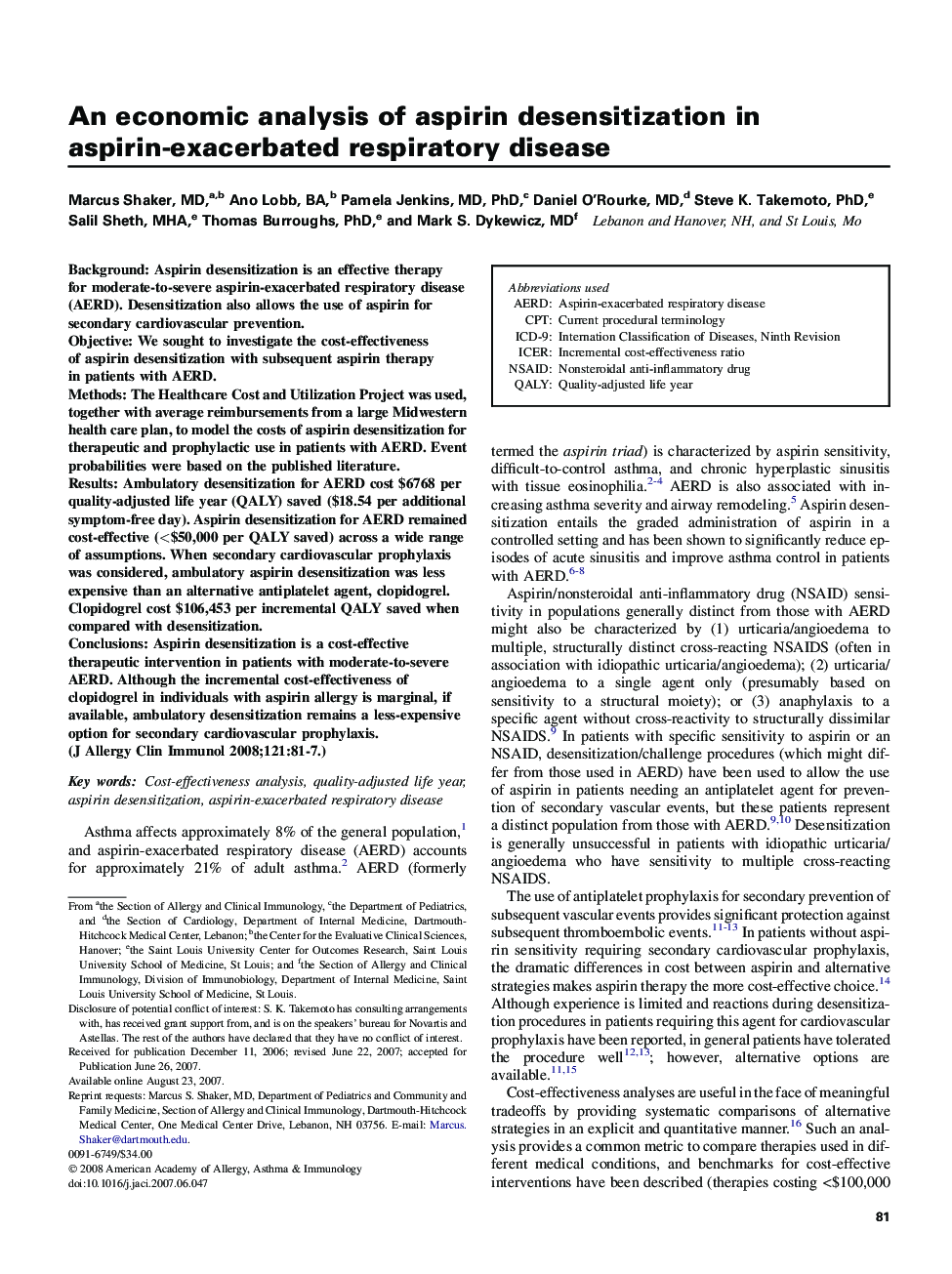| Article ID | Journal | Published Year | Pages | File Type |
|---|---|---|---|---|
| 3200992 | Journal of Allergy and Clinical Immunology | 2008 | 7 Pages |
BackgroundAspirin desensitization is an effective therapy for moderate-to-severe aspirin-exacerbated respiratory disease (AERD). Desensitization also allows the use of aspirin for secondary cardiovascular prevention.ObjectiveWe sought to investigate the cost-effectiveness of aspirin desensitization with subsequent aspirin therapy in patients with AERD.MethodsThe Healthcare Cost and Utilization Project was used, together with average reimbursements from a large Midwestern health care plan, to model the costs of aspirin desensitization for therapeutic and prophylactic use in patients with AERD. Event probabilities were based on the published literature.ResultsAmbulatory desensitization for AERD cost $6768 per quality-adjusted life year (QALY) saved ($18.54 per additional symptom-free day). Aspirin desensitization for AERD remained cost-effective (<$50,000 per QALY saved) across a wide range of assumptions. When secondary cardiovascular prophylaxis was considered, ambulatory aspirin desensitization was less expensive than an alternative antiplatelet agent, clopidogrel. Clopidogrel cost $106,453 per incremental QALY saved when compared with desensitization.ConclusionsAspirin desensitization is a cost-effective therapeutic intervention in patients with moderate-to-severe AERD. Although the incremental cost-effectiveness of clopidogrel in individuals with aspirin allergy is marginal, if available, ambulatory desensitization remains a less-expensive option for secondary cardiovascular prophylaxis.
